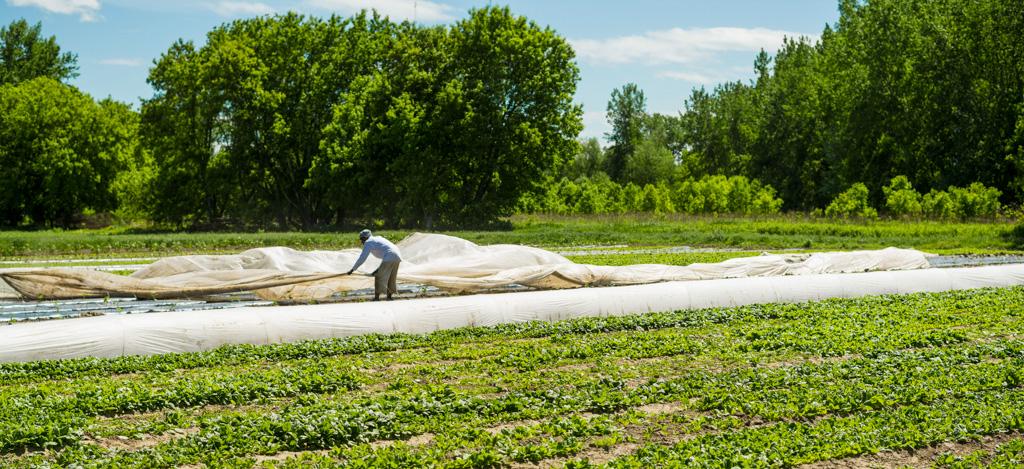July 18, 2025
NOFA-VT works in partnership with many other organizations to mutually support our intersecting visions. One such partner is Liberation Ecosystem, Inc., formerly Releaf Collective, a Vermont-based nonprofit that cultivates relationships and resources related to the environment, agriculture, and food among people of color in Vermont. This spring, we caught up with Samantha Langevin, Liberation Ecosystem, Inc.'s Director of Partnerships & Community, to provide an update for our members on their important work.
NOFA-VT: Please tell us about Liberation Ecosystem, Inc. and the work you do. What values ground your work and what makes your community unique?
Liberation Ecosystem, Inc. (LEI): We are a BIPOC-led climate and social justice organizing hub striving to build power and opportunity centered in the needs of BIPOC and multiply marginalized Vermonters. Our ultimate vision is the creation of a robust and thriving ecosystem that centers the power of Black, Indigenous, and Vermonters of Color to (re)create meaningful, reciprocal relationships with ourselves, one another, and the Land we call Home.
Grounded in our four priority areas - Land, Environment, Agriculture, and Foodways - Liberation Ecosystem provides programming, training, and solidarity offerings to simultaneously honor the needs and expertise of BIPOC Vermonters in achieving access to critical conversations to increase equity and justice across our state. Our core programs include: Building Community, our collaborative platform to support networking, technical assistance, meaning making, bread breaking, skillshares, and the development of affinity groups for Vermont residents; Sharing Opportunities, our thriving listserv with hundreds of participants highlighting employment opportunities, grants, events, training and technical assistance offerings, and land access opportunities, all in service to create onramps for BIPOC community members to serve in critical industries related to racial, social, and environmental justice; and Amplifying Voices, our statewide advocacy work to uplift BIPOC community members and values-aligned supportive organizations as existing resources and critical stewards in combating systemic racism across our state.
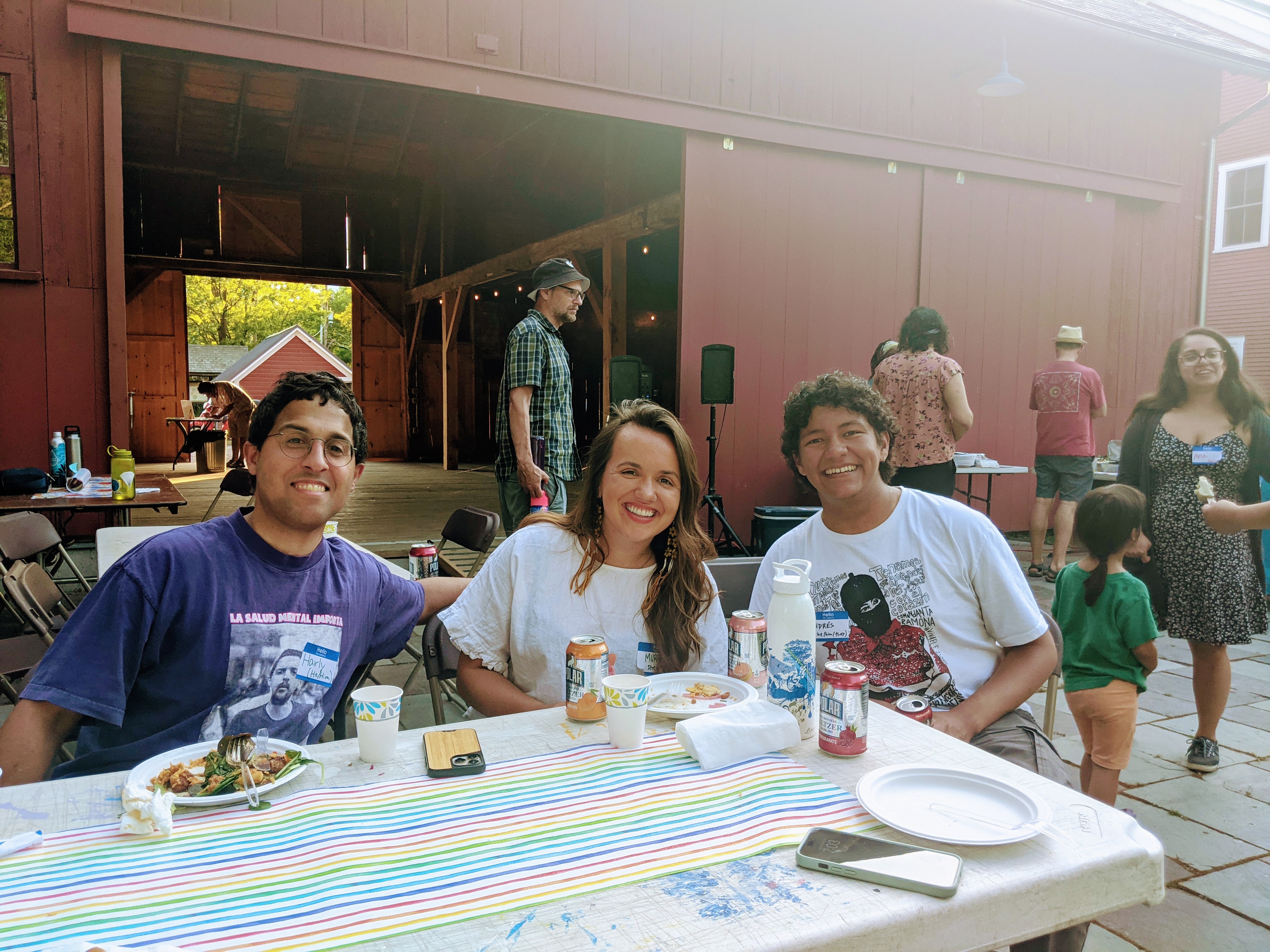
There are many problems facing our world right now, and we believe that the solutions to these problems are going to come from the people who have been most impacted. As an organization led by and for people with the lived experience of marginalization, we intimately understand what it means to be left out of the picture. That lived experience comes with barriers and challenges, but it also means that we have a clear view of who else needs to be brought in. For example, we are the only organization led by and for Vermonters of color that is specifically focusing on providing statewide technical assistance to farmers and growers of color. Within this work, we acknowledge that our food system depends on more than just commercial farms, and we intentionally consider how homesteading, gardening, and other non-commercial food production support and sustain our communities. This unique approach guides many of the ways we provide programming, conduct advocacy, and support our members.
NOFA-VT: What are the primary projects you’re currently working on?
LEI: So many! We have a staff person who focuses on technical assistance to growers — we see this project as resource navigation, helping farmers navigate bureaucracy to access critical resources (financial, informational, relational). Within that work, we are actively creating ecosystems of support for growers to build strong connections to each other and to share communally held skills and knowledge.
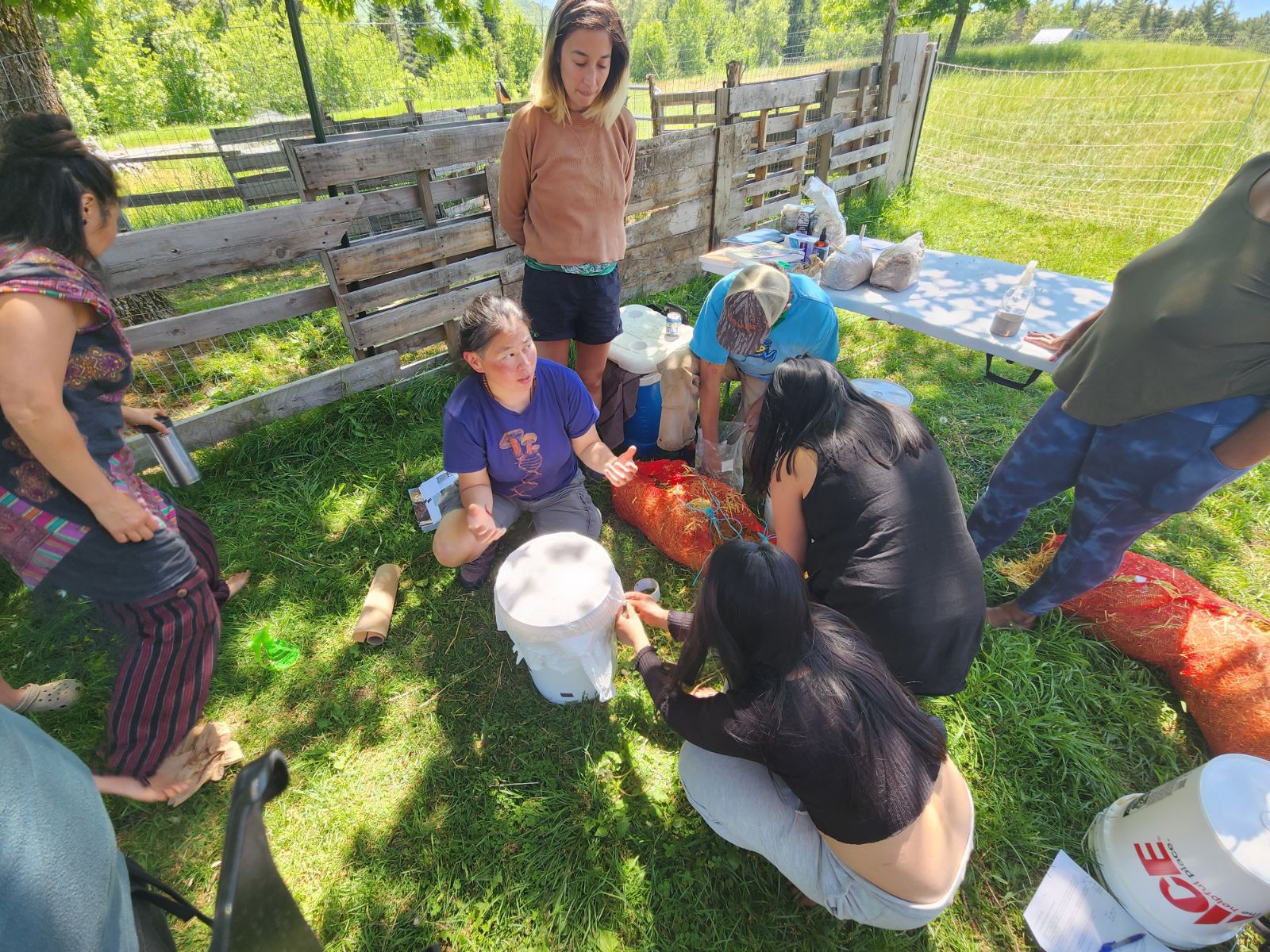
Our program offerings, particularly during the warmer months, are also robust. We host monthly Community Dinner & Conversation gatherings, one of our longest-standing traditions, focused on sharing food, resources, and connection. We also offer a range of workshops, including Farm Skills 101, Outdoor Cooking, and Foraging. Additionally, we work to create pathways for our members to lead their own programs and gatherings. This year’s member-led offerings include Emergency Preparedness and Alternative Paths to Home Ownership.
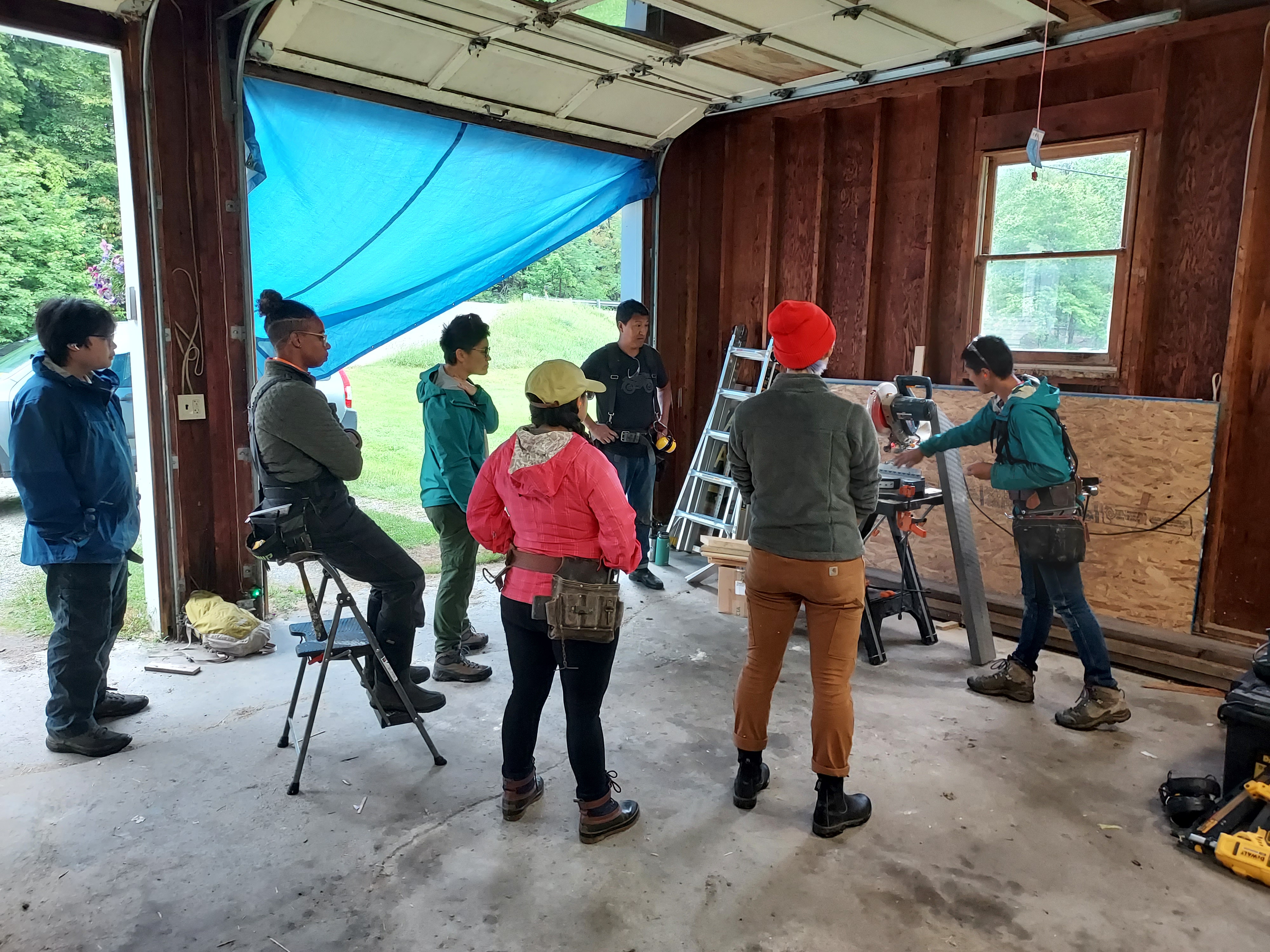
We also devote time to growing and supporting relationships with our peers. We believe that our success requires their success, and we pursue these connections in the spirit of non-competition. Active peer relationships include the Land Access & Opportunity Board, Vermont Professionals of Color Network, Community Resilience Organizations, New Suns Community Center, Vermont Farm to Plate, NOFA-VT, the Knoll Garden at Middlebury College, and our LibEco Agrarian Cohort, a group of community members who work in collaboration to plan agricultural programming.
Presently, we are also placing internal focus on questions like: When do we stop growing? How do we respond to urgency? How can we best plan ahead to continue to center our community? Our small staff of 3 intentionally sets aside time to consider these questions, and more, as we develop an organization that has a flat hierarchy and is accountable to its community.
NOFA-VT: Please share a story or highlight from your work in the past year.
LEI: In honor of this year’s equinox, we collaborated with members of the Institute for Agroecology at UVM, the Knoll Garden at Middlebury College, and LEI members in the food system to host an afternoon-long conference. Rise & Return was an intergenerational gathering centered around sharing and preserving agricultural, food-based, and land-centered knowledge held within communities of color, reinforcing traditional ways of teaching and learning. Held at Middlebury College, we saw a great turnout despite a March ice storm. Notably, we had really high participation from younger, college-age members of our community. Their energy and perspective are critical to our continued work, and in turn, it is just as important for them to have spaces where they can see their voices are valued. Excellent enchiladas and tres leches cake didn’t hurt either….
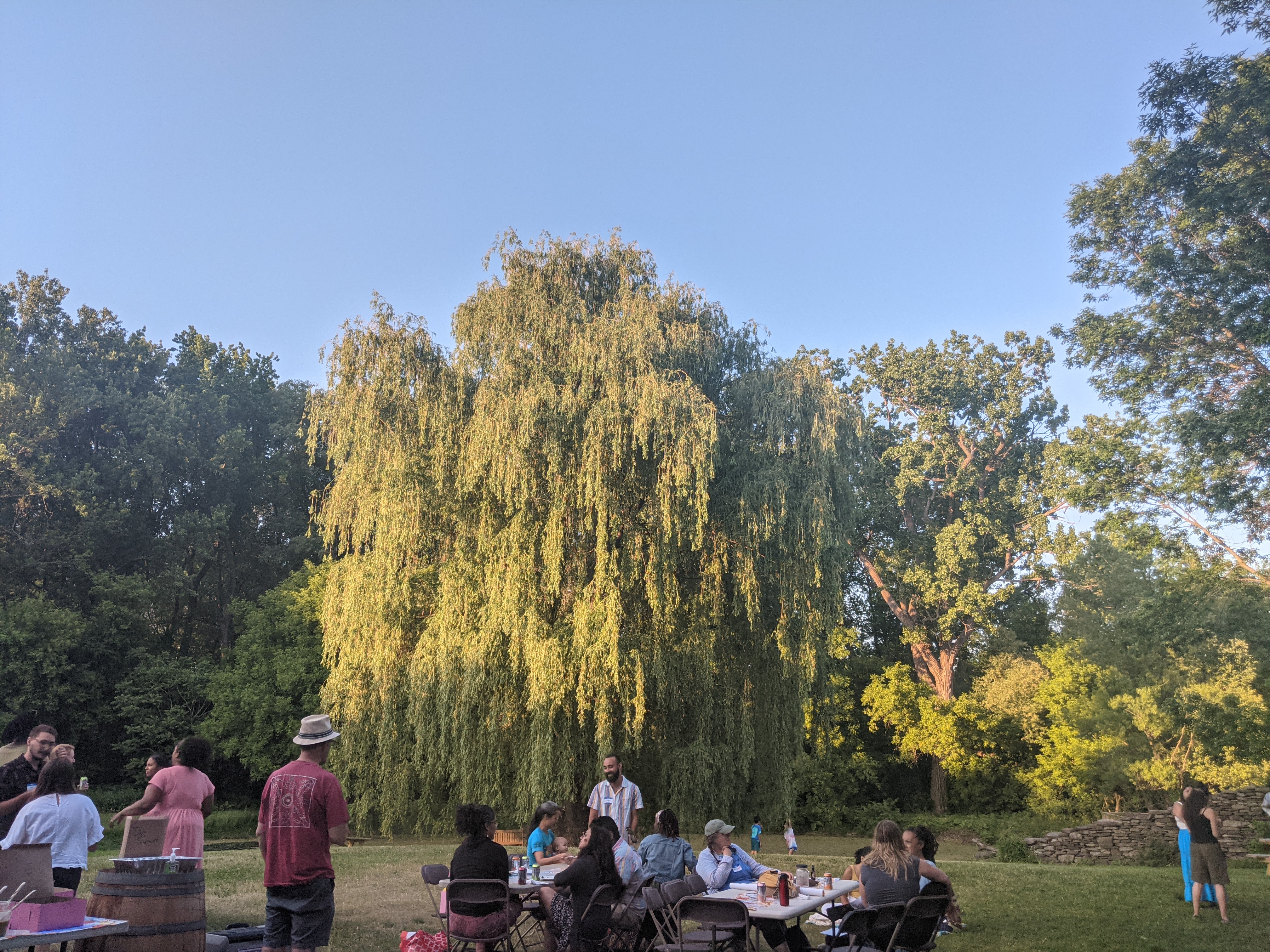
NOFA-VT: Can you share more about the ways you work to support farmers and promote food sovereignty through your work at Liberation Ecosystem?
LEI: We believe that food sovereignty is not just having the ability to choose what and how you eat, but that it also means you have the power to change your food system. A large portion of our programming is focused on skill-building with the goal of providing participants with pathways to increased self-resilience. With greater self-resilience comes the ability to feed the people around you, creating local foodsheds that are both place and people-based. When we provide these kinds of skillshares, we make a big effort to source teachers and instructors from our community, reinforcing the idea that we aren’t just passing on ways to feed ourselves, but that knowledge sharing is a part of food sovereignty. Skills-based workshops that center food, land, and agriculture are a core part of what we do.
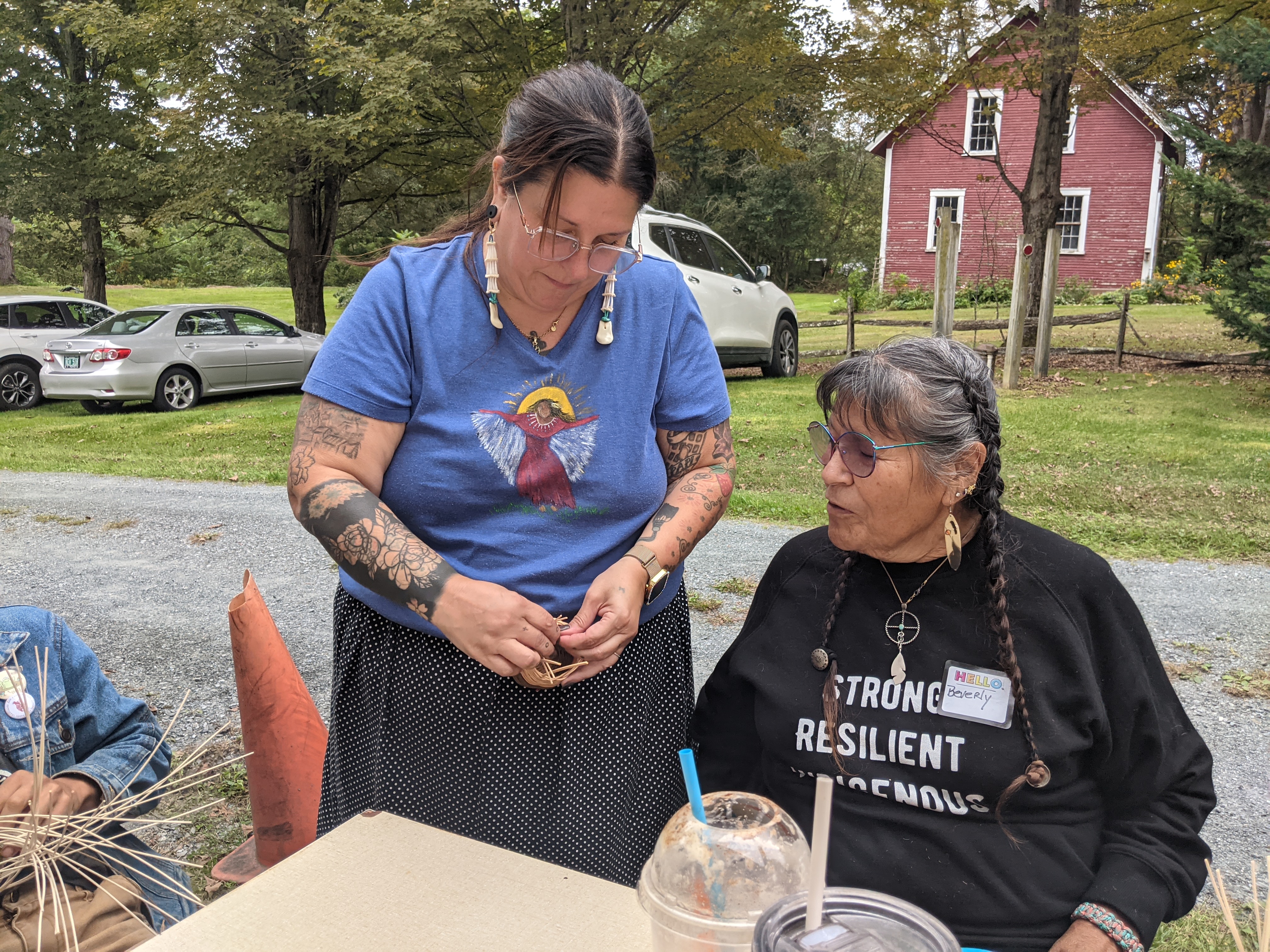
We interpret agricultural technical assistance in a unique way, through a lens that focuses first on relationships, and we strongly believe that this focus is critical to increased food sovereignty. Relational technical assistance lays a strong foundation for farmers in our network to trust us and the resources we pass along, and also gives us a deeper understanding of their needs and context beyond just what is in the field or greenhouse. For example, when we work with farmers to identify goals for the season, we are able to not only be more targeted in our efforts to get them access to the right resources, but we are empowering them to take on big challenges and build relationships with additional service providers in the state because they are not alone — we are taking those challenges on with them.
NOFA-VT: How can folks get involved with your work?
LEI: There are a couple of ways that folks can get involved! As a state-wide organization with a fully remote staff, we do not have a centralized office or physical location. This means that when we run programming, particularly in the northern- and southern-most parts of the state, we are often doing a lot of homework to find indoor and outdoor spaces. Access to welcoming spaces—whether buildings, wild lands, or other gathering places—is a much-needed resource for our community to learn and connect.
We are also always interested in exploring in-kind support from peer organizations. We have many positive current relationships with folks in our ecosystem, like NOFA-VT, that began this way. We are also open to equitable partnerships and collaborations with folks looking to support and grow our food system. Because we are a small (but mighty!) staff, we have a handy intake form to collect and detail these kinds of offers and communications.
Securing resources is an ever-present dance for a small nonprofit like ours, and we also welcome financial support from our fellow Vermonters. In our current society, where and how we spend money says a lot about what and who we value, and we encourage anyone who values our work to support us. You can do so by following this link to our secure donation platform.
Lastly, as a nonprofit that centers Vermonters of Color, we are in a time of heightened scrutiny and visibility. We cannot change how we look. This means that support can often look like privileged and resourced people and organizations maintaining public-facing policies, language, and work that does not “hide” or fly under the radar, as those actions make us more vulnerable.

